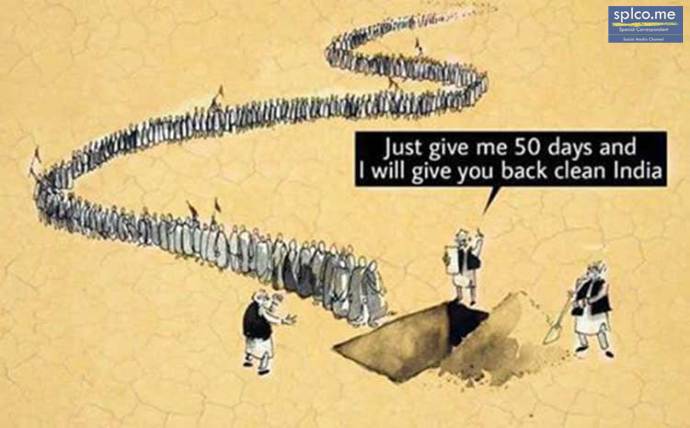An academic who created an app which harvested data from 50 million users says he has been made "a scapegoat" for Facebook and Cambridge Analytica.

Dr Aleksandr Kogan completed work for Cambridge Analytica in 2014, but said he had no idea the data would be used to benefit Donald Trump's campaign.
The psychology academic said he wanted the data so he could model human behaviour through social media.
Facebook says Dr Kogan violated the site's policies.
The Cambridge University researcher developed a personality survey called This is Your Digital Life.
About 270,000 users' data was collected, but the app also collected some public data from users' friends.
Cambridge Analytica whistleblower Christopher Wylie said that, as a result, the data of about 50 million users was harvested for the analysis firm.
He said: "The events of the past week have been a total shell shock, and my view is that I'm being basically used as a scapegoat by both Facebook and Cambridge Analytica when... we thought we were doing something that was really normal.
"We were assured by Cambridge Analytica that everything was perfectly legal and within the terms of service."
The firm's chief executive Alexander Nix - who was suspended on Tuesday., Tuesday's broadcast showed Mr Nix saying he met Donald Trump 'many times'.
He said that the work the company did, including research, analytics and targeted campaigning, allowed the Republican candidate to win with a narrow margin of "40,000 votes" in three states.
"We did all the research, all the data, all the analytics, all the targeting, we ran all the digital campaign, the television campaign and our data informed all the strategy," he added.
Cambridge Analytica denies doing anything wrong and on Monday said the executives had "entertained a series of ludicrous hypothetical scenarios" in order to "play along with this line of conversation, and partly to spare our 'client' from embarrassment".
But Dr Kogan said the accuracy of the dataset had been "exaggerated" by Cambridge Analytica, and said the dataset was more likely to hurt Mr Trump's campaign.
A spokesperson for Facebook said the academic was not allowed to transfer data to Cambridge Analytica, a third-party who would use the set for commercial purposes.
They added that sharing users' friends data outside the app was also against Facebook's fundamental principles.
Dr Kogan said he was following advice given to him by Cambridge Analytica, and added he had "no reason to doubt" that was breaking any policy with Facebook.
On Tuesday a Cambridge University spokesperson said they had "sought and received assurances" from Dr Kogan that no University data, resources or facilities were used for his work and they had found no evidence to contradict that, but were writing to Facebook to "request all relevant evidence in their possession".
In pursuance Facebook shares fell by a further 5% on Tuesday, following a 6.7% drop on Monday, meaning that in total, about $50bn has been wiped from its market value.
The UK's Information Commissioner Elizabeth Denham said she would be applying to court for a warrant to search the offices of Cambridge Analytica.
The consumer watchdog the US Federal Trade Commission - which has the power to levy large fines - has also reportedly opened an investigation into Facebook.
US and European lawmakers have demanded an explanation of how Cambridge Analytica gained access to user data in 2014 and why Facebook failed to inform its users, raising broader industry questions about consumer privacy.
Facebook said it had been told by the Federal Trade Commission (FTC), the leading U.S. consumer regulator, that it would receive a letter this week with questions about the data acquired by Cambridge Analytica. It said it had no indication of a formal investigation.
"The entire company is outraged we were deceived," Facebook said in a statement on Tuesday. "We are committed to vigorously enforcing our policies to protect people's information and will take whatever steps are required to see that this happens."
The FTC is reviewing whether Facebook violated a 2011 consent decree it reached with the authority over its privacy practices, a person briefed on the matter told Reuters.
If the FTC finds Facebook violated terms of the consent decree, it has the power to fine the company thousands of dollars a day per violation, which could add up to billions of dollars.
Facebook was also hit on Tuesday in a San Francisco court by the first of what could be many lawsuits by shareholders claiming to suffer losses because the company misled them about its ability to protect user data. The company could also soon face lawsuits on behalf of users whose personal information was exposed.
Facebook and its peers Alphabet Inc's Google and Twitter already face a backlash from users and lawmakers over their role during the U.S. presidential election by allowing the spread of false information that might have swayed voters toward Trump.
Fear of increased regulation hurt other social media firms on Tuesday. Shares of Snap Inc fell 2.5 percent and Twitter Inc fell more than 10 percent.
US Senator Dianne Feinstein, the top Democrat on the Judiciary Committee, called on Tuesday for Facebook CEO Mark Zuckerberg to testify in Congress. Congressional staff said the company would brief US Senate and House aides on Wednesday.
A Congressional official said House Intelligence Committee Democrats plan to interview Cambridge Analytica whistleblower Wylie. The committee interviewed Nix by video teleconference, according to the Congressional official, but a transcript of that interview has not yet been made public.
The Senate Intelligence Committee, which is conducting a long-term investigation of alleged Russian interference in US politics and a detailed examination of US election security precautions, would carry out its own inquiry of Cambridge Analytica, a Congressional official with direct knowledge of the investigation said.
The White House said it welcomed inquiries, and that the president believes that Americans' privacy should be protected.
In Britain, the Information Commissioner's Office, an independent authority set up to uphold information rights in the public interest, was seeking a warrant from a judge to search the offices of London-based Cambridge Analytica. It was unclear late on Tuesday whether it had obtained it.
Created in 2013, Cambridge Analytica markets itself as a source of consumer research, targeted advertising and other data-related services to both political and corporate clients.
According to the New York Times, it was launched with $15 million in backing from billionaire Republican donor Robert Mercer and a name chosen by Bannon.
Facebook says the data were harvested by a British academic, Aleksandr Kogan, who created an app on the platform that was downloaded by 270,000 people, providing access not only to their own personal data but also data from their friends.
Facebook said Kogan then violated its policies by passing the data to Cambridge Analytica. Facebook has since suspended both the consulting firm and SCL (Strategic Communication Laboratories), a government and military contractor.
Facebook said it had been told that the data were destroyed. Kogan was not immediately reachable for comment.














